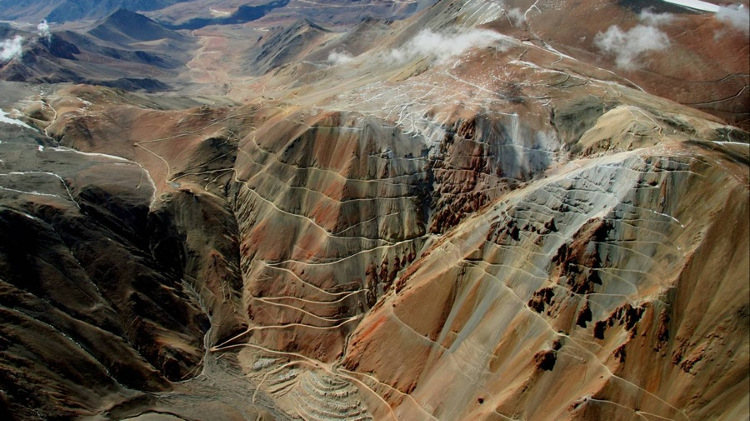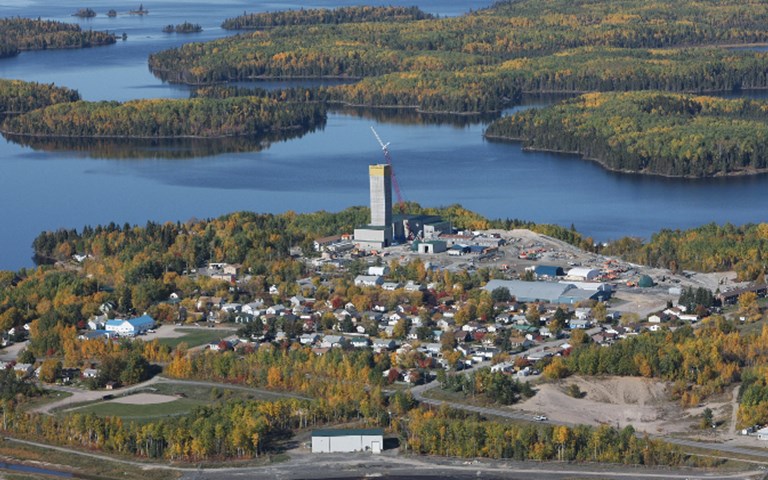IBM's Watson improved data processing times significantly at Goldcorp's Red Lake mine, pictured, where the cognitive technology is being employed to find high-grade zones of exploration. Courtesy of Goldcorp
Welcome back to your weekly mining news recap. At the end of every week we’ll catch you up on the mining news from CIM Magazine and elsewhere that you might have missed. Among this week’s headlines: Donald Trump threatens import tariffs on steel and aluminum, British Columbia plans to reform its environmental assessment process, and the high spirits and raucous parties of PDACs past return to this year’s convention.
*****
Canada is exempt from the United States’ tariffs on steel and aluminum – at least for now. On Thursday, President Donald Trump signed into law a controversial 25 per cent and 10 per cent import tariffs on steel and aluminum, respectively, which will affect all countries except Canada and Mexico. While Canada can breathe a sigh of relief for now, it is unclear how long the exemption will last or if it will come up as a bargaining tool in ongoing NAFTA negotiations. On Sunday, CRU Group director Paul Robinson told us both commodities were expected to have a good year, and the tariffs may not impact that. But the concern, Robinson said, is if they escalate into a trade war that impacts investor sentiment.
Acoustic Zoom was named the winner of Disrupt Mining on Sunday at a live “Shark Tank-style” finale during PDAC. The advanced geophysics company from Paradise, Newfoundland, will receive a $1-million investment from Goldcorp. Acoustic Zoom uses ultra-high-frequency 3D borehole seismic imaging to map subsurface geological structures. The proposal won out over three other semi-finalists: EnviroLeach Technologies, LlamaZoo Interactive, and Open Mineral AG.
Speaking of Disrupt Mining, we profiled the event’s youngest judge, 24-year-old Veronica Knott, for the latest instalment of our We Are Mining series. The University of British Columbia mining engineering student is already making a big impression in the mining industry, with Luis Canepari, Goldcorp’s vice-president of technology, calling her a “talent and profile that is going to change the mining industry in the future.”
Meanwhile at PDAC, miners were “partying with purpose,” combining cocktails and closing deals. The association pegged the attendance at 25,606 – 1,500 more than 2017 – calling it “a clear sign that the mineral exploration and mining has regained its swagger and is building momentum.” As Reuters reported, increases in global exploration buoyed attendees and notably improved the quality of partying from the “tiny budgets, wilting veggie trays and downbeat guests” of previous years. CIM Magazine editor-in-chief Ryan Bergen said a Toronto cab driver told him, “I like these miners. They are the only ones that spend money.”
Democratic Republic of Congo President Joseph Kabila will sign into law a new mining code that includes a five per cent increase on taxation on profits, Reuters reported on Wednesday, following a six-hour meeting between the president and executives from the country’s major mining companies. The Congo’s mining community has largely opposed the new legislation, with Rangold CEO Mark Bristow threatening in early January to bring the country to international arbitration if Kabila signed off on the code.
Rio Tinto’s West Angelas mine in Western Australia will get 15 trucks with autonomous capabilities, including the first of the company’s retrofitted Komatsu 930E trucks. West Angelas’s haul truck fleet is 25 per cent autonomous.
The British Columbia government announced it would reform its current environmental assessment process. The province has tasked a 12-member committee with making recommendations around transparency and continued reconciliation with Indigenous groups. The current Environmental Assessment Act, enacted in 2002, has been controversial, with a January paper by West Coast Environmental Law calling reform “welcome and sorely needed.”
Processing data at Goldcorp’s Red Lake mine in Ontario became 97 per cent more efficient for geologists after using IBM Canada’s Watson cognitive technology at the site for a year. At the beginning of the project last year, Watson was tasked with analyzing past data to help geologists determine what areas might be valuable for exploration work. Both IBM and Goldcorp told us that during the first phase of the project, Goldcorp’s geologists compared their own answers to Watson’s in order to validate them, and discovered it took Watson just four and a half hours to process data, in comparison to the geologists’ 165. In the project’s second phase, which has already begun, IBM is working with Goldcorp’s geologists to determine what questions they want Watson to answer.



